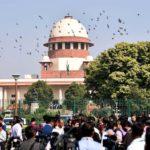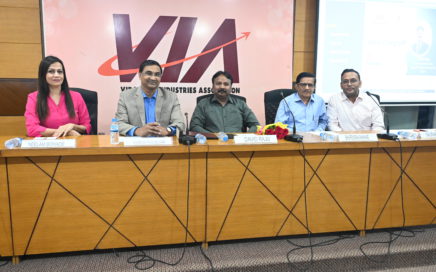
Nagpur: In a significant ruling, a Supreme Court (SC) bench comprising Justice Hrishikesh Roy and Justice Manoj Misra has dismissed a case of alleged medical negligence against city based Suretech Hospital, overturning the compensation awarded. The case centered on a Nasotracheal Intubation procedure, which was claimed to have resulted in severe medical complications.
The Court’s verdict emphasized that the situation represented a case of human fallibility, where medical professionals acted in the best interest of the patient, given their expertise and the evolving circumstances. The desired outcome, however, could not be achieved. Examining the treatment course, it was determined that there was insufficient evidence to categorize it as a case of medical negligence.
Advocate Fanish Kumar Rai, along with AoR Shantanu Sagar and others, represented the petitioners, while AoRs Rajesh Kumar and Sudhanshu S. Choudhari appeared for the respondents.
The case involved Civil Appeals filed under Section 23 of the Consumer Protection Act, 1986, challenging a decision by the National Consumer Disputes Redressal Commission (NCDRC). The NCDRC had directed Suretech Hospital, Dr. Nirmal Jaiswal, Dr. Madhusudan Shendre, and Dr. M.A. Biviji to pay Rs. 6,11,638 as compensation to Sunita Parvate for alleged medical negligence.
The procedure in question, a forced Nasotracheal Intubation, led to severe complications including tracheal damage, sepsis, and voice loss. While Sunita contended that the negligence resulted in Septicemia and Thrombocytopenia, the NCDRC found insufficient evidence to support these claims. Nonetheless, it concluded that the forced procedure was unjustified and directly led to tracheal damage, warranting compensation for the medical expenses incurred at Suretech Hospital.
In her appeal, Sunita sought higher compensation and an increased interest rate, while Dr. M.A. Biviji, Suretech Hospital, and the other doctors contested the charges, asserting that subsequent complications couldn’t conclusively be attributed to the procedure. The Supreme Court noted that the patient received treatment and underwent various procedures at multiple hospitals, suggesting the complications could have arisen at any of these locations.
Additionally, the Court observed that the available medical report did not attribute negligence to the involved parties. No adverse comments were made by the treating doctors regarding the chosen course of treatment. The Court found no evidence to suggest that the procedure was outdated or poor medical practice. It further highlighted that the medical team at Suretech Hospital made the decision after careful consideration and in response to observed conditions.
As a result, the appeal was dismissed, and each party was directed to bear their own costs. The compensation awarded for medical negligence was set aside. This verdict marks a significant development in the jurisprudence surrounding medical malpractice cases.
















